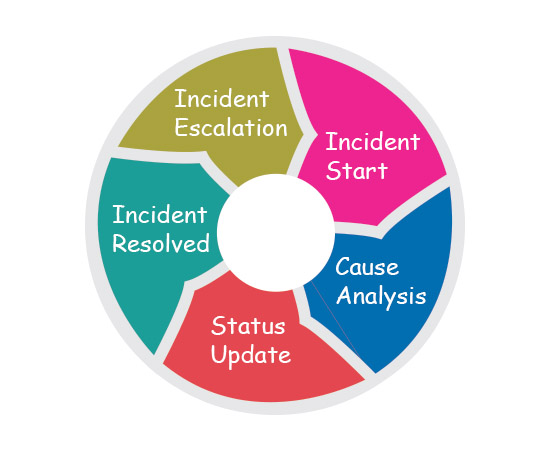What is IMS?
Incident Management systems (IMS) covers the complete incident management lifecycle. It permits all events to be reported , investigations managed and corrective action plans monitored. It offers comprehensive net and mobile information assortment choices, efficiency root cause analysis, and advanced reporting capabilities. Additionally intimate best practices could also be accustomed flip incident report information into preventive action plans.
"Incident management software package permits you established parent-child relationship between incident and their associated disadvantage tickets"
The primary function of IMS is to capture incidents like Enquiry, Requests and Complaints from the customers directly or routed through call coordinator. It allows the organization to analyze the reasons for non-conversion of enquiries to an order and helps in initiating course corrections
Benefits of Incident Management Software
Incident management software package permits you established parent-child relationship between incident and their associated disadvantage tickets. once a happening ticket is opened, it should be tied to a connected disadvantage ticket. Once the matter ticket has been resolved and closed, connected incident tickets shut what is more - automatically. The adaptable to treat and handle every incident and disadvantage tickets otherwise, and will be a key usefulness of climbable IMS system. Moreover, IMS system delivers versatile automation rules to allow IT technicians to alter service request progression and management. Reducing considerably the time and energy support agents pay to manage incidents. IMS is academic degree easy-to-install, easy-to-use that allows IT professionals to concentrate, manage, optimize and monitor the entire service request fulfilment methodology from ticket creation to resolution and on the far side.

Incident Management Categories:
• Incident detection and recording
• Classification and initial support
• Investigation and diagnosis
• Resolution and recovery
• Incident closure
• Ownership, monitoring, tracking, and communication
